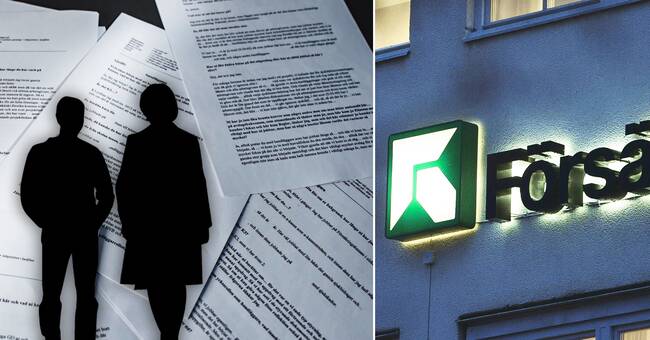"We have been a bit close to the good mother and let them into the insurance and supported them," says a unit manager at one of the Swedish Social Insurance Agency's offices in Norrland.
Assignment review has requested interviews with about 50 employees at the Swedish Social Insurance Agency conducted by investigators from the Swedish Social Insurance Agency, ISF.
The material provides a unique insight into how the authority changed when the government decided that the sickness benefit rate should be reduced to 9.0 - and about the reasons why the rejections increased.
"Was well on the salary call"
The administrators are interviewed three and three.
In one of the interviews, the investigator wonders whether the administrators are followed up on how many refusals of sickness benefits they make.
Then the following dialogue takes place:
Administrator 1: "Was it on the salary interview as well?"
Administrator 2: "Ugh, you mean that?"
Administrator 1: “Mm. We did too little rejection, they thought. "
Administrator 1 then develops his reasoning and says that he is "quite low in rejection" compared to others in the office.
"But I still usually try to have a good dialogue with my doctors, I blame.
Or, not to blame, but I try to handle it that way, as well as supplement and so on. "
Some "relatively good"
At one of the Norrland offices, a unit manager with long-term employment at the authority is interviewed.
The manager expresses that the office does not handle the health insurance as they should:
“We had a lot of administrators who did not make a single withdrawal, it was zero.
So we had some who were in the middle and some who were relatively good ”.
The unit manager also says that "it matters if a customer comes up to administrator A or administrator B, they get different decisions."
About the rejection
Another of the unit heads reasons about the goal 9.0:
"If you now make such a decision as an elected representative, you must be able to imagine that the only way to do it, is if you go out with less sickness benefit for some other way, there is actually no such thing."
Professor Kerstin Jacobsson leads a research team that followed the work at five of the Swedish Social Insurance Agency's local offices when the government's order for a reduced sickness benefit rate was rolled out in 2015–2016:
- What the outside world may have a little difficult to understand, is that there is a great deal of pride among the staff.
That you deliver what the politicians want.
Even if it means rejecting and multiplying the number of rejections over a number of years, says Kerstin Jacobsson.
The Minister comments
The then Minister of Social Insurance Annika Strandhäll (S) was the one who launched the government's target of 9.0 sick days per person and year.
She tells Assignment Review that she is not happy that the rejections have increased sharply - and says that it is a misinterpretation that this was what she wanted.
But then you must have been quite vague because these rejections continue to increase?
- I do not know how vague you may think you are if it is government assignments that are placed and there are also talks at the absolute top level in the authorities with the directors general.
No, but I think because rejection and withdrawal of sickness benefit, it increases, right?
- Yes, it increased.
And when we saw that it increased and that the balance did not work with people also getting the support they needed, we reacted from the Ministry of Social Affairs.
Försäkringskassan states to Uppdrag granskning that they are not satisfied with how the refusals of sickness benefits vary in the country and that they must now investigate the causes.
Assignment review series about the Swedish Social Insurance Agency is available on SVT Play.

